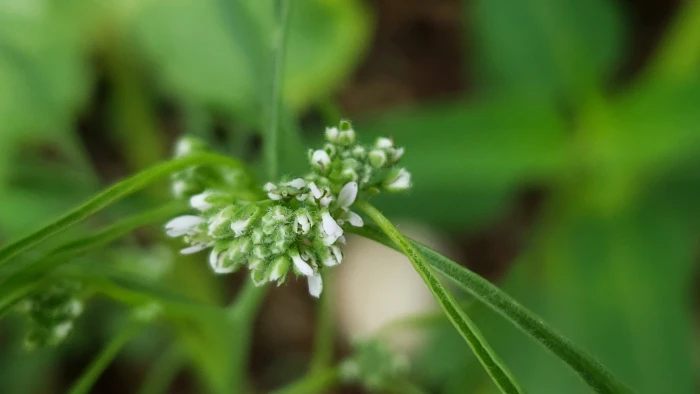Garden Cress
(Lepidium sativum)
Garden Cress (Lepidium sativum)
/
/

© Human Bean
CC BY 4.0
Image By:
© Human Bean
Recorded By:
Copyright:
CC BY 4.0
Copyright Notice:
Photo by: © Human Bean | License Type: CC BY 4.0 | License URL: http://creativecommons.org/licenses/by/4.0/ | Uploader: humanbean4383 | Publisher: iNaturalist |





























Estimated Native Range
Climate Requirements
| • Precipitation | 0" - 133" |
| • High Temp. | 55°F - 112°F |
| • Low Temp. | -23°F - 66°F |
Summary
Lepidium sativum, commonly known as garden cress, is an annual herb native to the Middle East. It is a fast-growing plant that can reach up to 24 inches in height. Garden cress prefers a well-drained, fertile soil and can often be found in disturbed sites, agricultural land, and along roadsides in its native range. It produces small white to pinkish flowers that are not particularly showy, but the plant is grown for its edible leaves which have a peppery flavor akin to watercress and mustard.
Garden cress is valued for its quick growth cycle and nutritional content, being high in vitamins A, C, and K, as well as various minerals. It is commonly used in salads, sandwiches, and as a garnish due to its tangy flavor. In cultivation, garden cress can be grown in soil or via hydroponic systems, where it thrives in slightly alkaline water. It requires consistent moisture but is otherwise easy to maintain. While it is not typically grown for ornamental purposes, its ease of cultivation makes it a popular choice for kitchen gardens and educational projects. However, garden cress can be potentially invasive outside its native range, so it is important to check local regulations before planting.CC BY-SA 4.0
Garden cress is valued for its quick growth cycle and nutritional content, being high in vitamins A, C, and K, as well as various minerals. It is commonly used in salads, sandwiches, and as a garnish due to its tangy flavor. In cultivation, garden cress can be grown in soil or via hydroponic systems, where it thrives in slightly alkaline water. It requires consistent moisture but is otherwise easy to maintain. While it is not typically grown for ornamental purposes, its ease of cultivation makes it a popular choice for kitchen gardens and educational projects. However, garden cress can be potentially invasive outside its native range, so it is important to check local regulations before planting.CC BY-SA 4.0
Plant Description
- Plant Type: Herb
- Height: 0.7-1.6 feet
- Width: 0.3-1 feet
- Growth Rate: Rapid
- Flower Color: White
- Flowering Season: Spring, Summer
- Leaf Retention:
Growth Requirements
- Sun: Full Sun
- Water: Medium
- Drainage: Medium
Common Uses
Edible*Disclaimer: Easyscape's listed plant edibility is for informational use. Always verify the safety and proper identification of any plant before consumption., Low Maintenance
Other Names
Common Names: Pepper Grass, Gardencress Pepperweed, Pepperwort, Poor Man’s Pepper
Scientific Names: Lepidium sativum, Arabis chinensis, Arabis chinensis, Cardamon sativum, Crucifera nasturtium, Lepia sativa, Lepidium hortense, Lepidium obovatum, Lepidium sativum subsp. sativum
GBIF Accepted Name: Lepidium sativum